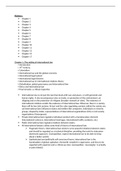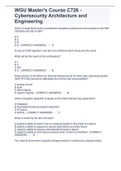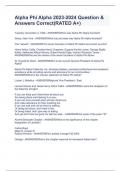Samenvatting
International Law - Jan Klabbers (2nd edition, April 2017), summary
- Instelling
- Tilburg University (UVT)
Summary of the book International Law by Jan Klabbers (467 pages) in 77 pages. Chapters: • Chapter 1 • Chapter 2 • Chapter 3 • Chapter 4 • Chapter 5 • Chapter 6 • Chapter 7 • Chapter 8 • Chapter 9 • Chapter 10 • Chapter 11 • Chapt...
[Meer zien]















